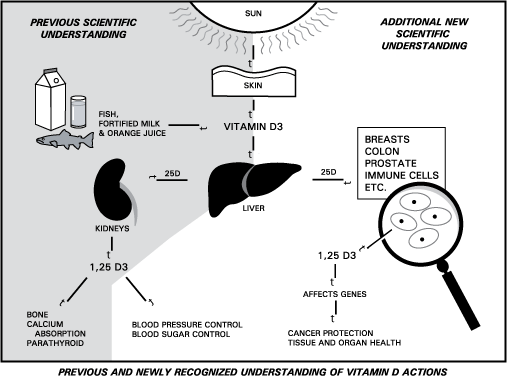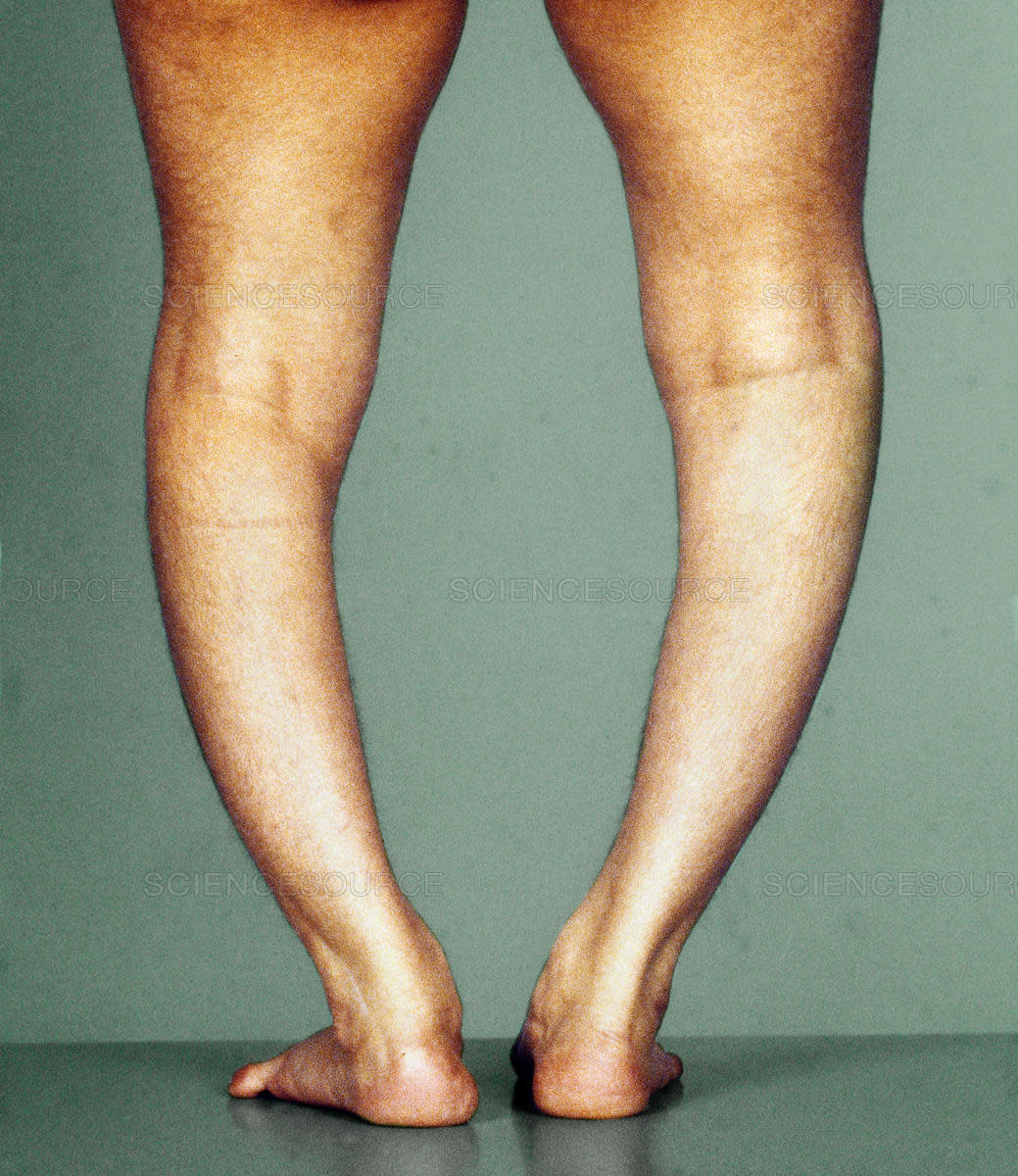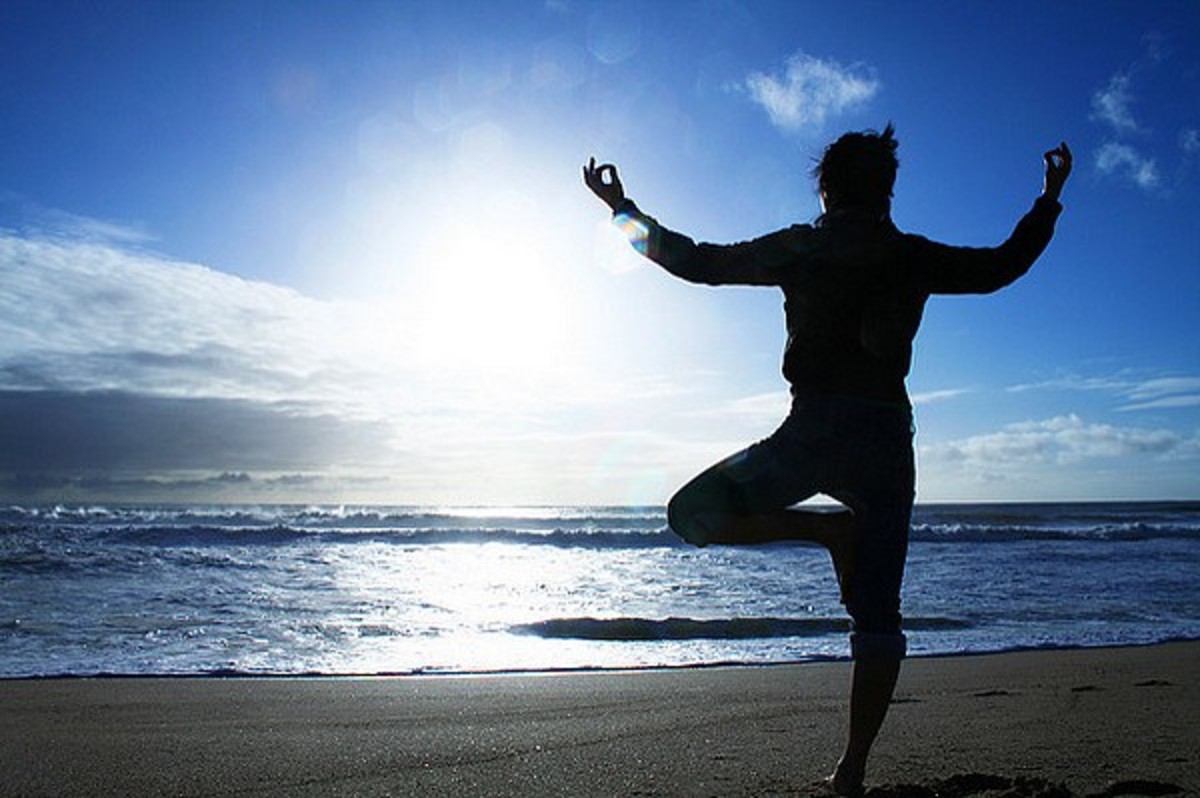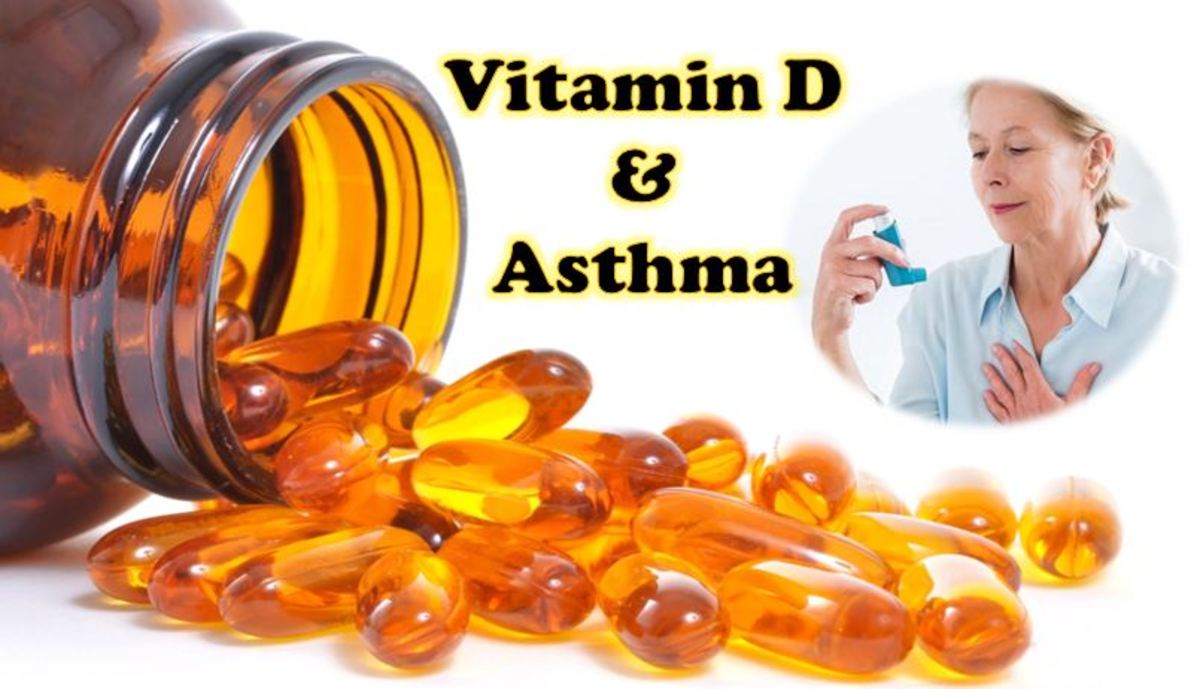Vitamin D, Why Is It So Important? How Do I Know If It is Low? What Are My Risks If I Am Deficient In Vitamin D?




Vitamin D Deficiency
"Vitamin D3 has been shown to reduce the incidence of cancer, many auto-immune diseases, and, inflammatory and infectious processes. Vitamin D3 is also protective of bone and muscle." By Milton Hare Author "Sunlight-VitaminD"
Vitamin D deficiency has been quite the topic in the news lately. I never thought much about the vitamin which is actually a hormone until my rheumatologist told me she had tested me and I was too low in the hormone. I was immediately started on high dose supplements and close monitoring.
It has been speculated that lack of sufficient vitamin D may actually cause the beginning of MS, (Multiple Sclerosis). Studies are now being done. Women in particular have a high risk of hip fracture from too little of the hormone. So how does the sun make vitamin D in our bodies? We now know that UVA and UVB light converts 7-dehydrocholesterol to vitamin D.
One of the reasons we may be suffering from too little vitamin D is the change in our lifestyles. We have become a society of insiders using computers, working long hours, watching too much tv. Children play video games and participate in many indoor after school activities. Gone are the days of long afternoons riding bikes and skating on our driveways. We are not absorbing the sunshine vitamin we need. Also because of fear of the loss in the ozone layers we are wearing more sunscreen and rightfully so to prevent skin damage and even skin cancers which can also be deadly especially in the case of malignant melanoma. Somehow we need to get the right doses either through more early morning sun exposure or supplements. We have to be careful though because of the risk of toxicity. In my case my doctor is monitoring my dose. Ask your doctor or pharmacist for help on determining your correct dose.
The problem with taking too much vitamin D is the possibility of liver damage and kidney stones. Vitamin D is stored in your fat cells so it is not removed or flushed through your system as readily as non-fat soluble supplements like the B vitamins. The worst case scenario is taking too much at toxic levels and your blood levels become toxic at serum 25(OH)D
We can get most of our vitamin D needs through the sun but with the the excessive use of sunscreen and our busy lifestyles it is difficult to get out and get enough. The amount of D your body can produce depends on how far you live from the equator. It actually takes very little exposure to get enough . If a person lives at or below the level of Columbia SC and spends just 7 to 10 minutes outdoors twice a week they will produce enough to stay healthy.
Dark skinned individuals have a more difficult time storing the supplement.Some people have tried artificial UV rays and this can actually work but you must be cautious of skin cancer. When exposing yourself to the sun you don't need to burn to get the vitamin. Just a little pink hue is plenty.
Supplements are therefore the next best option. D3 is the supplement recommended by doctors. It is usually recommend in 400 IU dosages but we actually need 1000 IU a day to be healthy We absorb some D through our food especially milk and fish, meat and eggs and dried shiitake mushrooms but you you have to drink 30 glasses of milk to get the correct dosage.
Health Risks from Excessive Vitamin D
Vitamin D toxicity can cause symptoms such as weight loss,constipation, polyuria, and heart arrhythmia's. More seriously, it can also raise blood levels of calcium which leads to vascular and tissue calcification, with subsequent damage to the heart, blood vessels, and kidney failure.
Too much Vitamin D can raise calcium levels leading to kidney stones especially in those more susceptible . Taking the the vitamins together allows one to lead less of each.
-
Dermatologists are concerned people will take the D deficiency so seriously that they needlessly expose themselves to too much sun and then risk developing melanoma. one of the deadliest forms of cancer. After you have been outdoors for the allotted time you need to put on a sunscreen of at least 15 or more. An individual can make approximately 20,000 IU of D in 7 to 10 minutes depending on smog, cloud cover, time of day and year and latitude. Persons living at 37 degree latitude cannot produce enough D in the sun in the winter.Tanning beds are questionable because of the inability to control the amount of good UV rays.
Symptoms of Vitamin D Deficiency♣
- Fatigue
- General muscle pain and weakness
- Muscle cramps
- Joint pain
- Chronic pain
- Weight gain
- High blood pressure
- Restless sleep
- Poor concentration
- Headaches
- Bladder problems
- Constipation or diarrhea
-
It is recommended that breastfed infants be supplemented with 400 IU a day until they are weaned.
Vitamin D toxicity is rare except in those on thiazide-like diuretics and people with liver and/or kidney disease. The main cause of toxicity is from the build up of too much calcium in the blood called hypercalcemia.
-
Some of the disease suspected of being caused by Vitamin D deficiency include♣
- Osteoporosis
- 17 varieties of Cancer (including breast, prostate and colon)
- Heart disease
- High blood pressure
- Obesity
- Metabolic Syndrome and Diabetes
- Autoimmune diseases
- Multiple sclerosis
- Rheumatoid arthritis
- Osteoarthritis
- Bursitis
- Gout
- Infertility and PMS
- Parkinson's Disease
- Depression and Seasonal Affective Disorder
- Alzheimer's Disease
- Chronic fatigue syndrome
- Fibromyalgia
- Chronic Pain
- Periodontal disease
- Psoriasis
It is important when taking supplements to speak with your doctor and pharmacist about potential drug interaction.
When exposing yourself to the sun it is also a good idea to take antioxidants to prevent sun damage and never get a sunburn.
People with the most susceptibility to deficiency are those with chronic conditions, obesity gastric bypass surgery, lactose intolerance, elderly and those living in the northern hemisphere.
- Foods High in Vitamin D♥
- Fatty fish such as salmon ,mackerel, sardines and tuna
- egg yolks and cheese ( especially swiss cheese)
- beef liver
- shiitake mushrooms
- fortified orange juice and breakfast cereal
- yogurt
- margarine
- cod liver oil
What does vitamin D do? It makes enzymes and proteins important for health. It aids in production of strong immune function and builds strong bones and muscles. It also aides in production of insulin and has anti-cancer properties.
If you do find your levels are well below normal and have to take supplements be sure to follow your doctors instructions and have your blood levels tested. Remember more is not better .It can be fatal.
Correct Dosages of Vitamin D
The Institute of Medicine currently recommends that children and adults up to age 70 get 600 international units (IU) of vitamin D daily. The recommendation for adults over age 70 is 800 IU daily. ♦
Reference:
♣Dr Frank Lipman Huffington Post
♥National Institute of Health and USDA
♦The Mayo Clinic
Best Selling Vitamin D
How much Vitamin D to take Daily
Vitamin D aids in cell turnover
Studies have shown that women low in Vitamin D are more likely to have decreased cell turnover at at a younger age. Once you body slow cell turnover the aging process increases. This is just one more reason not to allow yourself to find yourself with low Vitamin D levels
Symptoms of Vitamin D Defieciency
Pure Natural Vitamin D liquid Drops
What Vitamin D does for us and sources of it

Interesting links relating to Vitamin D
- Importance of Getting Adequate Vitamin D
Vitamin D is loosely known as the sunlight vitamin. Your body makes vitamin D when skin is exposed to sunlight. However, many people in certain parts of the world that is far from the equator do not get enough sunlight (especially in the winter)... - Multiple Sclerosis | Fibromyalgia | Vitamin B12 Deficiency - Which One is it?
When a patient presents at the surgery with complaints of feeling tired and multiple aches and pains it can be very difficult for the doctor to ascertain exactly what the diagnosis is. - Vitamin D and Sunshine - Health Benefits of the Sun
The importance of fresh air and sunshine includes exposure to Vitamin D which helps our bodies absorb calcium and can help prevent depression, osteoporosis, and insomnia. - Vitamin D for Menstrual Health
Despite the fact that it is one of the few nutrients the human body can manufacture (with a little help from the sun) more than 70% of American adults are estimated to be vitamin D deficient. This is bad news, because vitamin D is an... - Vitamins and Nutritional Supplements - Why Do We Rea...
As the quality of our food sources declines, and until we can bring about wholesale changes in food production and processing, we need to take steps to safeguard the health of our families. Many of us are turning to naturally sourced vitamin and mine - Vitamin D: Best Time of Day to Get More of the Sunsh...
Many adults don't get enough Vitamin D. This article focuses on the best ways (and times) to get natural Vitamin D from the sun's rays. - Health Benefits of Using Vitamin B12
Vitamin B12 have a numerous amount of benefits that can help individuals in different ways. The most common benefit of B12 is its ability to boost ones energy level, and speed up your metabolism. Patients who suffer with Chronic Fatigue Syndrome can.










